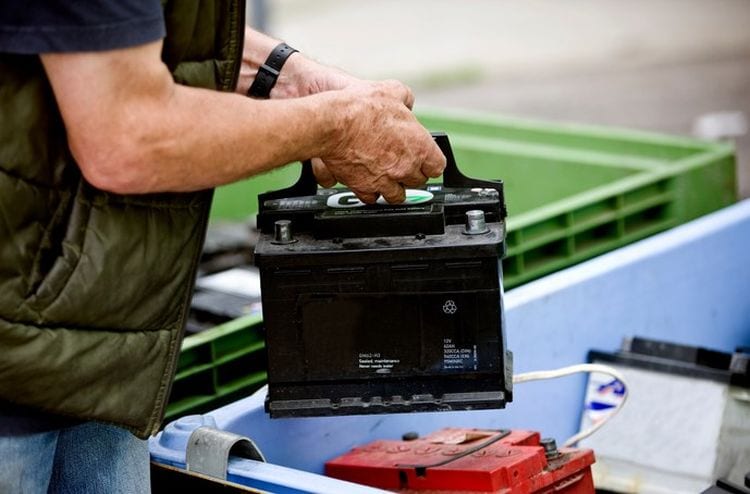If you are an adventure lover, having a properly maintained RV battery should be one of your top-most priority. This is to enable it run smoothly and maintain its value because a dead battery is the last thing you should expect on your camping trip. A properly maintained deep-cycle battery can last for up to 6 years or even more.
Most RV owners think that replacing their batteries after a year or two can offer them good solutions. Although sooner or later you will need to replace it, applying some basic maintenance and care tips can be very beneficial. Below are the top 10 expert tips on how to extend your RV battery’s life.
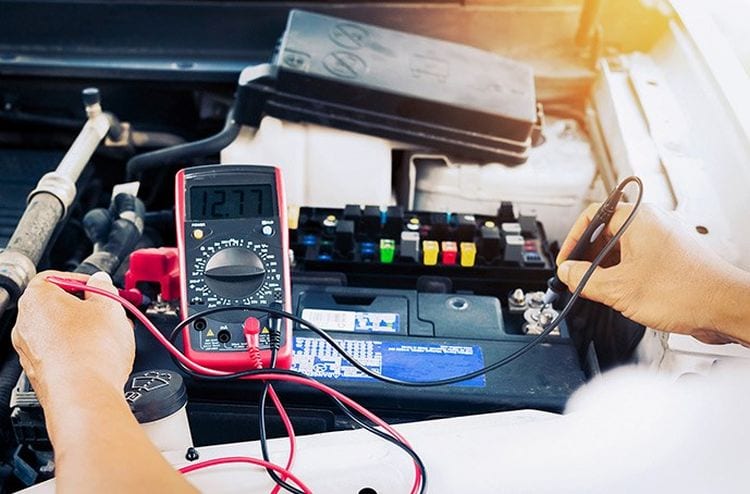
- Recharge it frequently
Recharging your RV’S lead –acid battery immediately after a discharge can help you extend its life by possibly avoiding deep discharges. You should understand your battery’s charge cycle. Your battery’s charge cycle is when it is discharged and recharged.
Start by understanding that it doesn’t make electricity but rather stores it. Its deep cycle is supposed to be when the battery is discharged from 100% – 20%, then recharging it to 100%.
Always charge your battery in a well-ventilated area. Also, a fully saturated charge is about 14-16 hours. Additionally, always keep your battery charged before storing. Storage below 2.07V/cell or 1.190 gravity levels and below should be avoided.
However, never discharging it below 50% on each cycle can help it last twice as long as a deep cycled one. Also, do not let your battery discharge up to 0% (10.5 volts) as this will greatly reduce its lifespan. Avoid discharging it below 40% as recommended by experts.
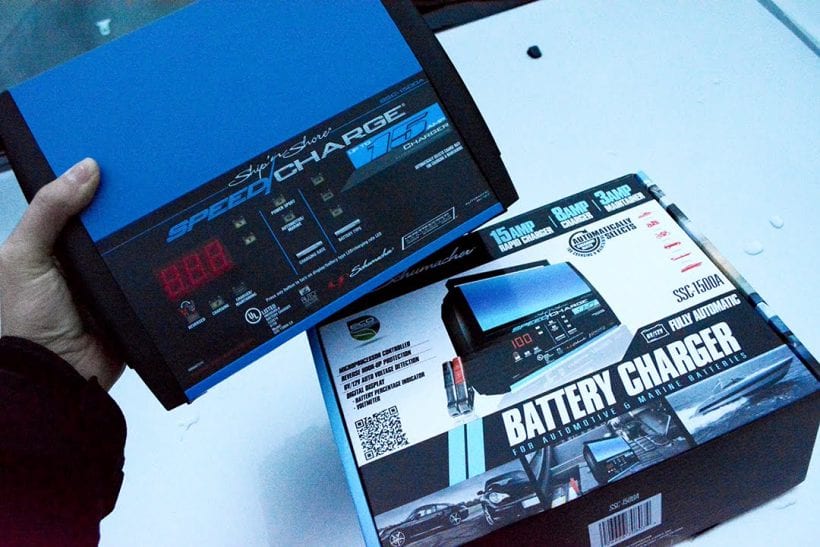
- Frequently check the water levels
Avoiding overcharging and hot temperatures can greatly extend your battery’s life. Frequently check the water levels during high temperature seasons or high battery usage periods.
Check the electrolyte levels then proceed to add the required amount of distilled water (mineral free water). Avoid using the regular tap water as this can lead to calcium sulfation.
- Cool it off regularly
It is important to let your battery “rest” and stay inactive after the usage and recharging period. If you immediately connect your battery to work after being fully charged, you risk burning out your battery.
At this point, your battery is still not able to perform to its best abilities. During the recharging cycle, a lot of heat is generated. Immediately running your battery after this cycle can lead to grid corrosion and eventual complete battery failure.
- Avoid Stratification
Electrolyte stratification in your RV battery’s deep cycle occurs when partial charging and discharging is done repeatedly. This can greatly reduce its capacity and performance.
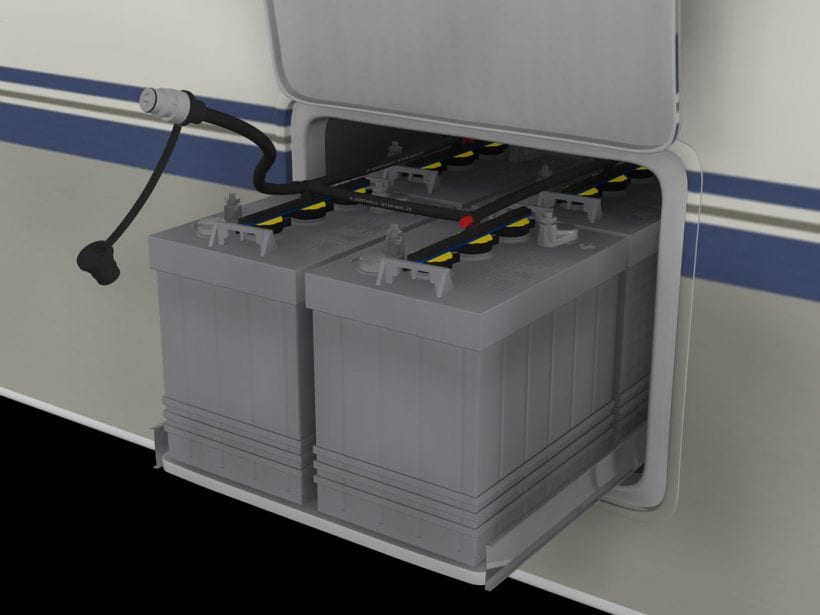
Stratification interferes with the chemical balance used to effectively run your battery. In this case, there is limited plate activation because the battery’s acid at the top has been seeped to the bottom.
You can rectify stratification by:
- Regularly running your battery
- Enabling slow act of diffusion
- Maintaining the electrolyte level
- Disconnect the switch when not in use
RV’s have parasitic components that can discharge your battery over time. Some of these parasitic loads include the appliance circuit boards, the LP gas leak detectors, antenna power booster, stereos and the clocks. “Off” the battery disconnect switch when the RV is not in use. - Conduct Equalization
Conduct periodic equalization in order to maintain the cell’s balance after your normal charge cycle. Having the correct cell balance is very important because a dip in cell regularity can cause instability or battery failure.
Equalization refers to applying an extended, low current charge after conducting your normal full charge cycle. This will help improve the charge time by 3 at least hours when using the manually timed chargers.
- Only water after charging
Water should only be added to your batteries after charging unless it had exposed plates prior to charging. In this case, add enough distilled/de-ionized water until the plates are fully covered then charge it. After charging, completely fill each cell up to the vent well’s bottom. - Charge your batteries in stages
Proper battery charging should be conducted in the following stages: - Stage 1-During the first few hours, use a bulk charge to return it to 90%.
- Stage 2-For the remaining 10%, use an absorption charge which prevents gassing and water loss.
- Stage 3-Finally, use a float charge which helps maintain the full charge.
Ensure that you have a 3-stage RV converter charger.
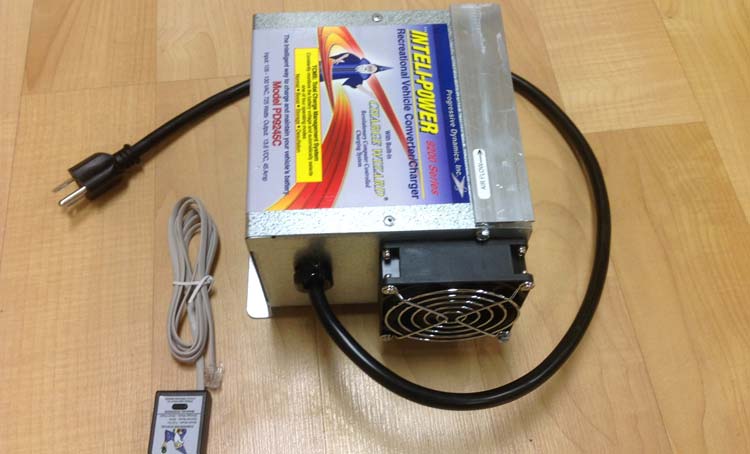
- Gently format your battery
A new RV battery has a 70% or less capacity. Apply gentle loads during the first 5 cycles to allow your new battery format. Properly formatting your battery can gradually increase its lifespan and performance. - Never add acid
Frequently adding acid can cause excessive corrosion due to the high rise in specific gravity.
In conclusion,
It’s important that your RV battery is well-maintained both during and after its normal charge cycle. Just follow these tips to help improve your batteries lifespan and performance.
Also, safety procedures such as wearing gloves, safety glasses, and removing jewelry should be followed when handling lead-acid batteries.

